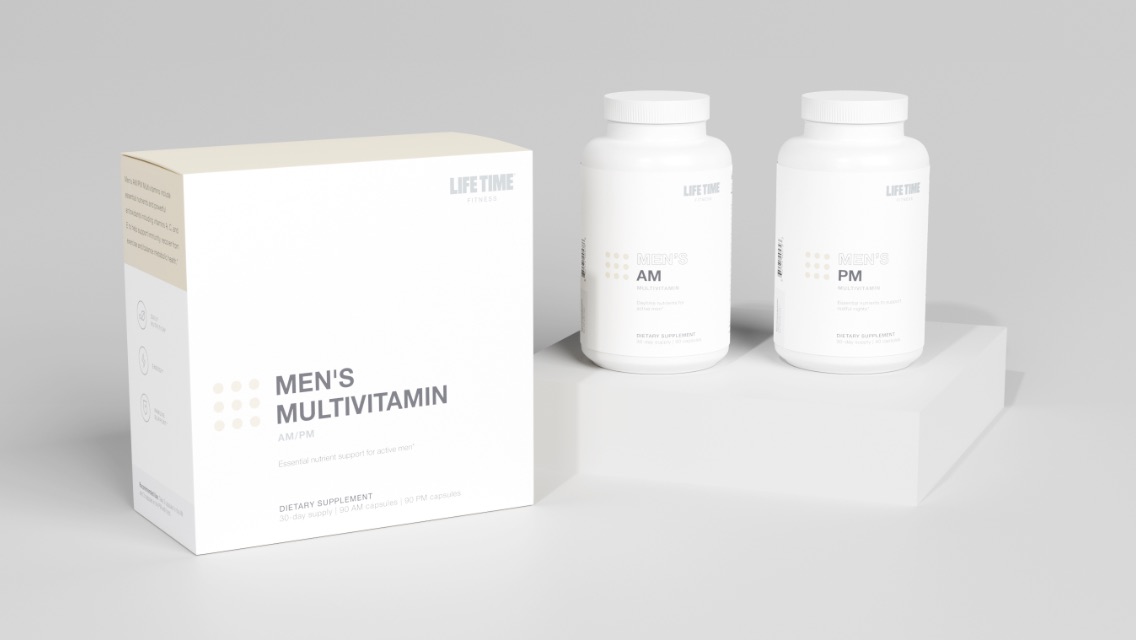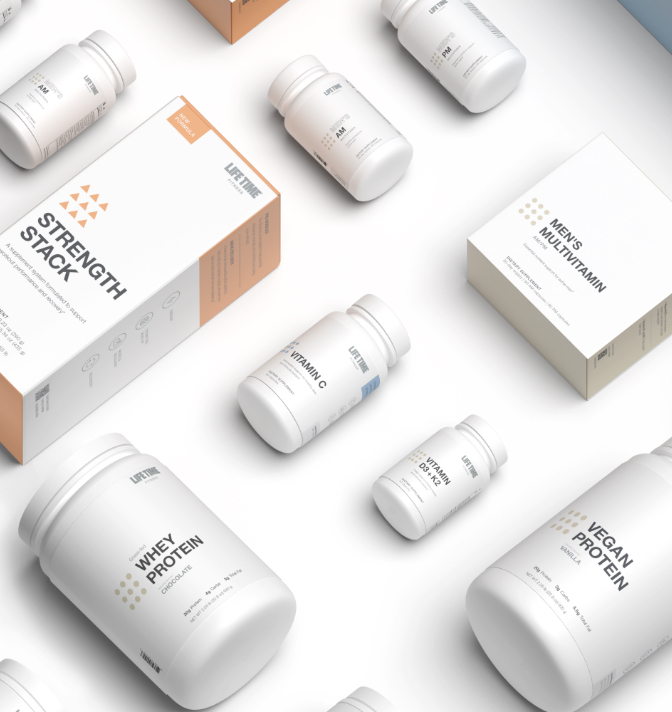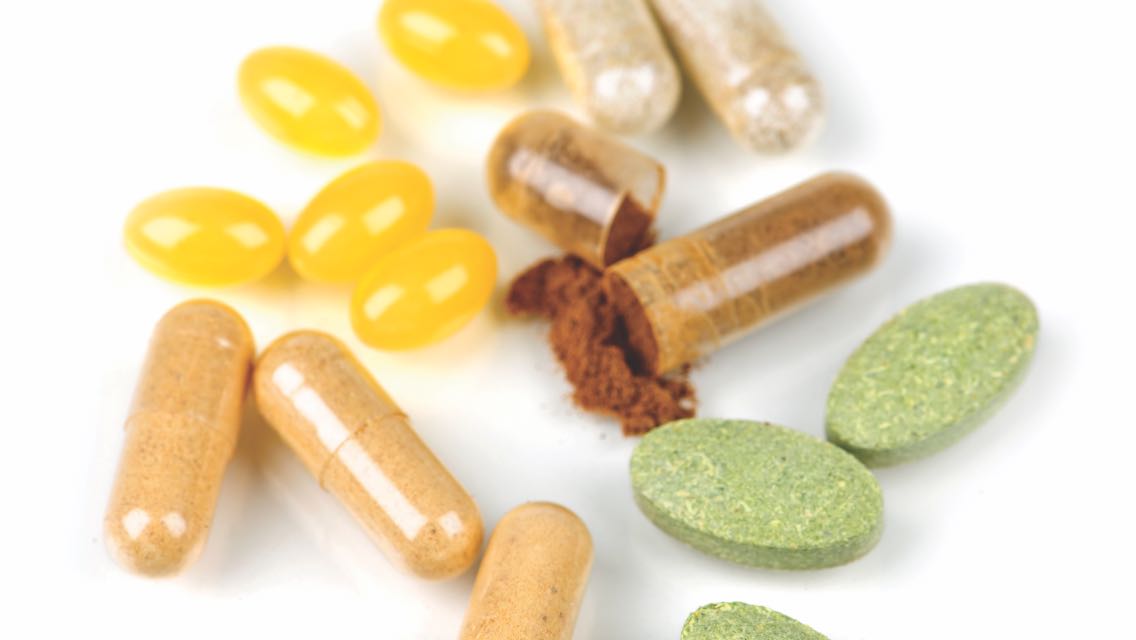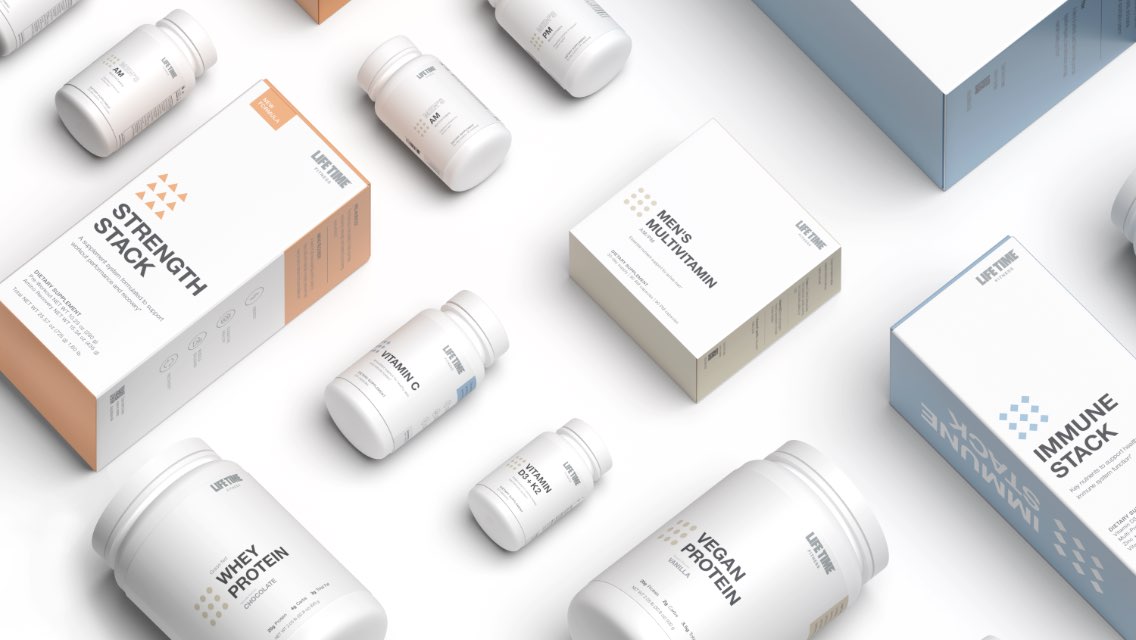“What can I take to boost my testosterone?”
If I’ve learned anything from being a dietitian and nutrition coach, it’s that it’s human nature to always seek a quick fix. The idea of putting in consistent effort with nutrition, fitness, and lifestyle over time is less appealing than the promise of a magic bullet — whether the end goal is fat loss, muscle gain, or overall vitality.
The allure of a fast and easy solution to hormone woes is understandable. And for both men and women, testosterone has a significant impact on how one feels and functions throughout the day.
Testosterone is tied to building and maintaining muscle mass and a lean physique, along with a balanced mood, endurance, stamina, libido, and optimized cardiovascular health. When it’s low, the first thought is often to replace testosterone levels with, well, testosterone. And if not with testosterone, then with a supplement targeted at “boosting” testosterone.
First Things First
While there’s a time and a place for hormone therapy or specialized supplementation, it’s rarely the first action to take. When testosterone levels are below optimal (which is more common than you might think; read more about it here: Low Testosterone: Causes, Symptoms, and Solutions), there are a few frequent causes:
- You’re not making enough.
- You have enough, but it’s bound up and not available to use.
- Your hormone-clearing pathways are clogged and causing an imbalance.
For each of the reasons above, there are certain mission-critical fundamentals to have in place to even give your metabolism a fighting chance at optimizing your testosterone levels. These include regular sleep, exercise, stress management, blood-sugar control, and nutrient sufficiency.
I like to compare it to building a house: don’t worry about paint colors before pouring the concrete for the foundation.
This is where a high-quality multivitamin can serve as an underrated hero — part of the concrete, so to speak — in supporting healthy hormone levels. While taking a multivitamin alone is unlikely to send testosterone levels soaring into optimal, it can function as a crucial step to implement consistently.
Here are a few more details as to how it can help.
It supports metabolic health.
The word “metabolism” is often oversimplified and thought of as only a marker of how easily one can lose body fat or burn calories. In reality, it refers more to the sum of all the life-sustaining reactions that happen in your body.
This relates to testosterone because research has shown that the more optimized your metabolism is (in essence: the better your overall health), the more likely it is that your testosterone levels check out OK. And conversely, the worse your underlying health is, the more likely it is that testosterone levels are tanked.
The right one supplies a good form and dose of zinc.
Research has shown that in men with lower zinc levels, repleting zinc can boost testosterone since it’s important for the function of the testes (where testosterone is made in men) and the production of hormones.
This is important because zinc is often depleted in:
- Chronic dieters
- Those who sweat a lot
- Those who regularly consume alcohol
- People taking proton pump inhibitors for reflux
- Anyone following a vegetarian or vegan nutrition plan
There are various forms of supplemental zinc. To support the rate and amount of zinc absorption, you might want to consider a form that is chelated or bound to picolinic acid, such as zinc picolinate. Chelated minerals are wrapped in amino acids, and the best ones often show up on the label as a “bisglycinate.”
Starting with a high-quality multivitamin is probably your best bet before jumping to an isolated zinc supplement. Too much zinc supplementation can cause some digestive upset, and prolonged supplementation of too high of a dose can cause a copper deficiency.
Life Time’s suite of multivitamins each contain a minimum of 25 milligrams of zinc in a bisglyinate chelate form across all four offerings: Multi Performance Complex, AM/PM Women’s Multivitamins, AM/PM Prenatal Multivitamins, and AM/PM Men’s Multivitamins.
Read more here: Zinc: The Mineral You Didn’t Know You Needed.
You may be more likely to exercise.
Regular physical activity is a non-negotiable for testosterone support. And from my experience as a trainer and dietitian for the last 15 years, the most common reason people report inconsistency with exercise stems from complaints of low energy levels.
While low energy can occur for a multitude of reasons, I often recommend first ensuring that B-vitamin status is adequate (along with other obvious basics, such as prioritizing sleep and hydration). Most of the energy drinks and shots on the market and sold at gas stations are merely B-vitamin tinctures, and often loaded with sugar.
Instead of relying on cheap shots to stay awake and active, why not make sure you’re taking a full spectrum of functional B-vitamins as part of a regular multivitamin routine?
It’s critical during any weight-loss phase.
Shedding extra body fat can be a helpful strategy to optimize testosterone. In fact, losing as little as 5 percent of your weight can start to have a positive impact on blood levels.
But as many of us know, there are a number of paths to weight loss, and some are better than others.
To support a healthy and sustainable approach to fat loss — and therefore supporting the balance of hormones like testosterone — we often recommend using a multivitamin to provide effective forms of nutrients in impactful dosages. This not only has been shown in literature to support fat loss and calorie burn, but it helps to ensure a consistent supply of vitamins and minerals for overall functioning.
Plus, just because you’re in a caloric deficit doesn’t mean that your body can function well in a nutrient deficit. Essential vitamins and minerals are still needed for testosterone production, utilization, and clearance. Using a multivitamin can help close those gaps.
Read more here: 3 Supplements That Support Weight Loss.
Caveat: The benefits from your multivitamin hinge on which one you’re taking.
Not all supplements are created equal. As a dietitian, nowhere have I seen more variety in formulas and dosing than in the multivitamin market.
This is also why there often is consumer confusion as to whether or not multivitamin supplementation is truly beneficial, since most studies I’ve seen use cheap, low-quality options that don’t even meet the Recommended Daily Intake for vitamins and minerals — let alone the optimal amount.
Life Time puts in an enormous amount of time and effort to ensure the supplements we offer are not only pure, but that they work.
Whether or not you choose to use Life Time’s supplements, give this a read to help you sift through if the one you’re using is worth taking or not: High-Quality Multivitamins: Why You Need Them. How to Shop For Good Ones.





